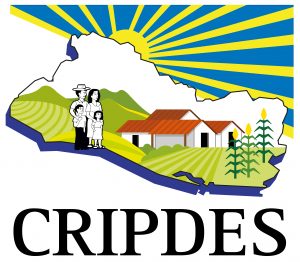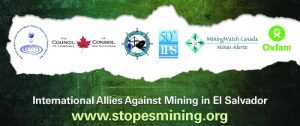Migration, Sister Cities
The VISA process for USESSC staff in El Salvador
By El Salvador staff
Some people in the U.S. get angry when they learn that people have entered illegally to their country and they wonder why these migrants can’t follow the “proper legal procedure”. Some people don’t even know that Family Preference Green Cards processing can take from 1 to 10 years depending on the wait time and yearly caps. Some people don’t know that getting just a tourist visa to the U.S. can be a challenge on its own.
During the last 4 years, U.S-El Salvador Sister Cities (USESSC) coordination positions have been given to Salvadorans. The two Salvadoran co-coordinators have been committed to strengthening the solidarity work between U.S committees and Salvadoran rural communities. The work of USESSC’s staff in El Salvador requires regular visits to the U.S to meet with the Board of Directors every spring, also to be part of the National Gathering and Speaking Tour that take place in the U.S once a year. The National Gathering is a space to strategically plan the continuous support of community growth and development in more than 15 rural and organized communities in El Salvador. It is essential to have the presence of the two coordinators in such space and meetings. Unfortunately, that has not been the case for several years. Only one of the two coordinators has been able to get a visa to travel to the U.S. Thus, making the work of USESSC more challenging.
Since 2016, all Salvadoran coordinators of USESSC in El Salvador have gone through the very stressful situation of applying for a U.S visa every time they want to accomplish one of their tasks. One of them had to go through this process four times. For the first three times, the Board of the network sent letters testifying that she was an employee of a U.S organization, and that USESSC was going to cover all her travel expenses. Nonetheless, her visas were always for just one entrance. A visa for 10 years was granted until her fourth time going through this process. On the other hand, the U.S. visa has been denied to the two young male Salvadoran coordinators. The former co-coordinator applied three times. It wasn’t until his third attempt that they gave him a Visa for one entrance, only. The current male co-coordinator in El Salvador has applied for his visa twice, and it has been denied both times. The denials were clearly not because of lack of stable income or ability to cover travel expenses. Nor is it likely the officers thought the applicant would overstay his visa. It would seem that such denials are a strategic exclusion of young male Salvadorans, who provided all their personal information to the U.S. government getting nothing in return. This long and intense process puts the USESSC staff in a stressful situation almost twice a year.
Besides filling a long application, getting letters of invitation and wasting an entire morning in line on a not-so-friendly environment as the U.S. Embassy, there is another aspect that affects USESSC staff: the cost of this process. Every applicant must pay $165.00 for each application and for the “proper” picture that will be attached to their visa in case it is granted, plus transportation to the Embassy. Let’s stop and consider those Salvadorans that also pay around $55.00 to $75.00 for Asesoría Migratoria (immigration counseling) to have the form filled out on their behalf. USESSC must allocate at least $350.00 within the operative budget every year in order to cover visa expenses for one staff person. Money that is not refundable if the visa is denied. Visa expenses could be better used to support one year of high school studies for a young person from a rural community in El Salvador. This situation forces the U.S-El Salvador Sister Cities Network to trim its annual budget assigned to support projects that empower Salvadoran communities.
Lastly, there are important events for USESSC throughout the year, such as annual Board meetings, Speaking Tours and National Gatherings in the U.S. The network has not been able to have the presence of both co-coordinators in them for a while. Every year, USESSC holds a spring board meeting in the U.S to evaluate and plan new areas of work for the whole network. All this evaluation and planning require information from El Salvador shared by the staff in El Salvador. Unfortunately, during the last years, it has been difficult to get information from one of the coordinators. Sometimes, he has tried to connect by using technology, but it has complicated the overall process. Moreover, the importance of having the two co-coordinators being part of National Gatherings in the U.S is crucial for the work with communities in El Salvador. During National Gatherings, both coordinators should lead analysis of the Salvadoran reality before strategically planning for the year. Unfortunately, not having the experienced and knowledgeable staff based in El Salvador to share the Salvadoran reality limits the process of accompaniment and advocacy for the development of Salvadoran communities.



